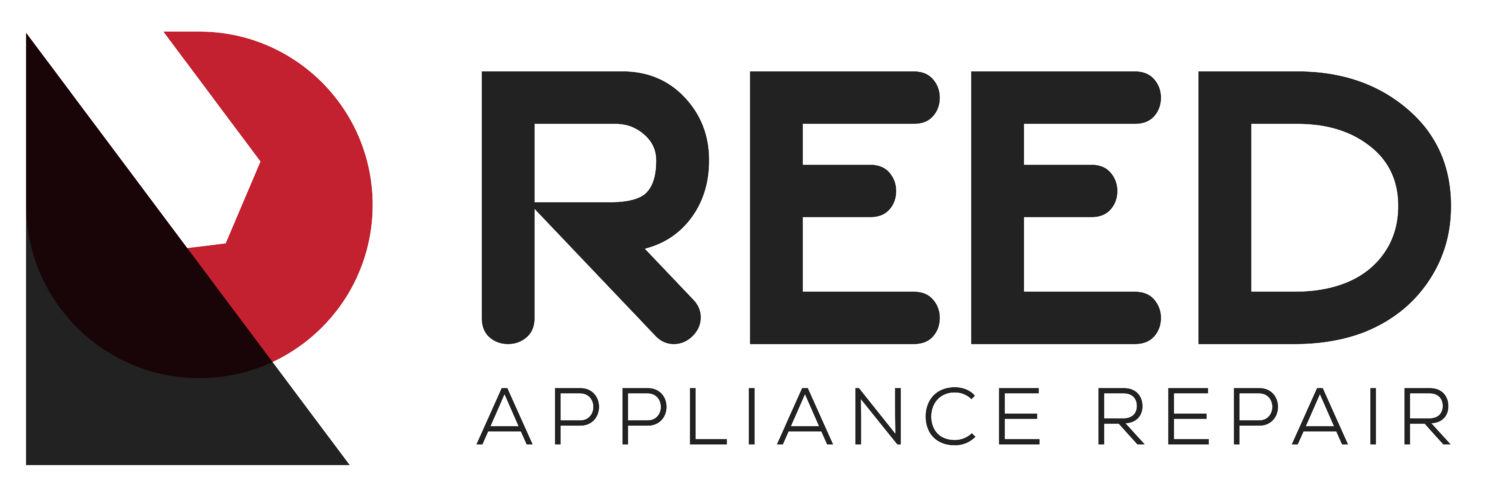Appliance Safety Tips
The appliances in your house often make your life easier, but if you use household appliances the wrong way, they could create significant risks. It is best to care for your appliances and be sure they do not turn into hazards by following these helpful household appliance safety recommendations from Reed Appliance Repair.
The professional tips below can help to prevent fires and injuries related to appliances. That being said, hazards could still happen. In the event a home appliance breaks or malfunctions and becomes a safety concern, call a professional appliance repair.
GFCI Outlets in Wet Locations
Laundry rooms, kitchens, basements, bathrooms, outdoor areas and garages are susceptible to dampness or dripping water. Of course, electricity and water don’t go together, therefore power cords and wires should be plugged into GFCI outlets.
This can prevent electrocution by tripping the circuit when any interruptions in power occur.
If you don’t already have GFCI outlets installed in wet areas around your home, now is the time to install them or call an electrician in CITY. After that, for additional safety, be sure to heed the warnings of appliance manuals that note that an appliance is not for outdoor use.
Cords, Electronics & Outlets Away From Wet Areas
Quite a few home appliances are specially built for outdoor areas, like barbecue grills. If you make us of electrical appliances outdoors – including dishwashers, refrigerators, ice makers and freezers, electric tools and more – ensure that all cords and outlets are 100% dry. Weatherproof electronics will help, along with GFCI outlets with water-tight gaskets.
Extension Cords are a Temporary Option
An extension cord poses several risks, including:
The potential for loose connections that might result in sparks and cause a fire.
The chance of power fluctuations that would damage the appliance.
Increased vulnerability to moisture penetration that may cause electrocution.
The potential for cords overheating and becoming a fire hazard when an inadequate extension cord is paired with a high-power appliance.
When deciding on an extension cord for short-term use, ensure it is the correct gauge for the electrical equipment in question. The smaller the gauge, the bigger the size for the wire. For example, a basic electrical extension cord for a radio might have a 16-gauge wire whereas a larger cord for a AC unit uses a 12-gauge wire.
The length of the cord is also important. The longer the extension cord, the more electricity is used up enroute, a phenomenon known as voltage drop. Shorter cords are advised for electric tools and equipment.
Always Be Sure to Read the Operating Manual for Any Appliance You Purchase
It’s simple to assume that you know how to use a brand new home appliance without reading the manual, but reading the instructions is important for several reasons:
You will want to find out whether your house’s wiring is sufficient to support the appliance. You may need to install a circuit to prevent overloading any current ones.
You learn more about complicated features you wouldn’t have otherwise known about.
You discover if the appliance is OK for outdoor use or not.
You don’t have the stress that can sometimes come from trying to use a home appliance with no instructions!
Unplug Small Appliances in Your Home When Not in Use
You can prevent unnecessary energy consumption by unplugging them when not in use. The reason is small appliances often include LED signals, clocks and other energy-draining features standby times.
Unplug monitors, televisions, modems, printers, routers, game systems, cellphone chargers and more to stop unnecessary energy consumption. But remember, it is OK to keep DVRs and similar electronics plugged in to prevent missing out on their automatic background functions.
For additional tips on ways to use home appliances safely, or to hire a professional appliance repair service, please contact Reed Appliance Repair. Our technicians can fix all major household appliances!
OTHER RESOURCES:
Appliance Repair Cost
DIY Appliance Repair Tips
Repair or Replace Appliances
Refrigerator Parts
Home Services Campaign Disclaimer: This site is a free service to assist homeowners in connecting with local service providers. All contractors/providers are independent and this site does not warrant or guarantee any work performed. It is the responsibility of the homeowner to verify that the hired contractor furnishes the necessary license and insurance required for the work being performed. All persons depicted in a photo or video are actors or models and not contractors listed on this site.
Copyright ©2025 Reed Appliance Repair
